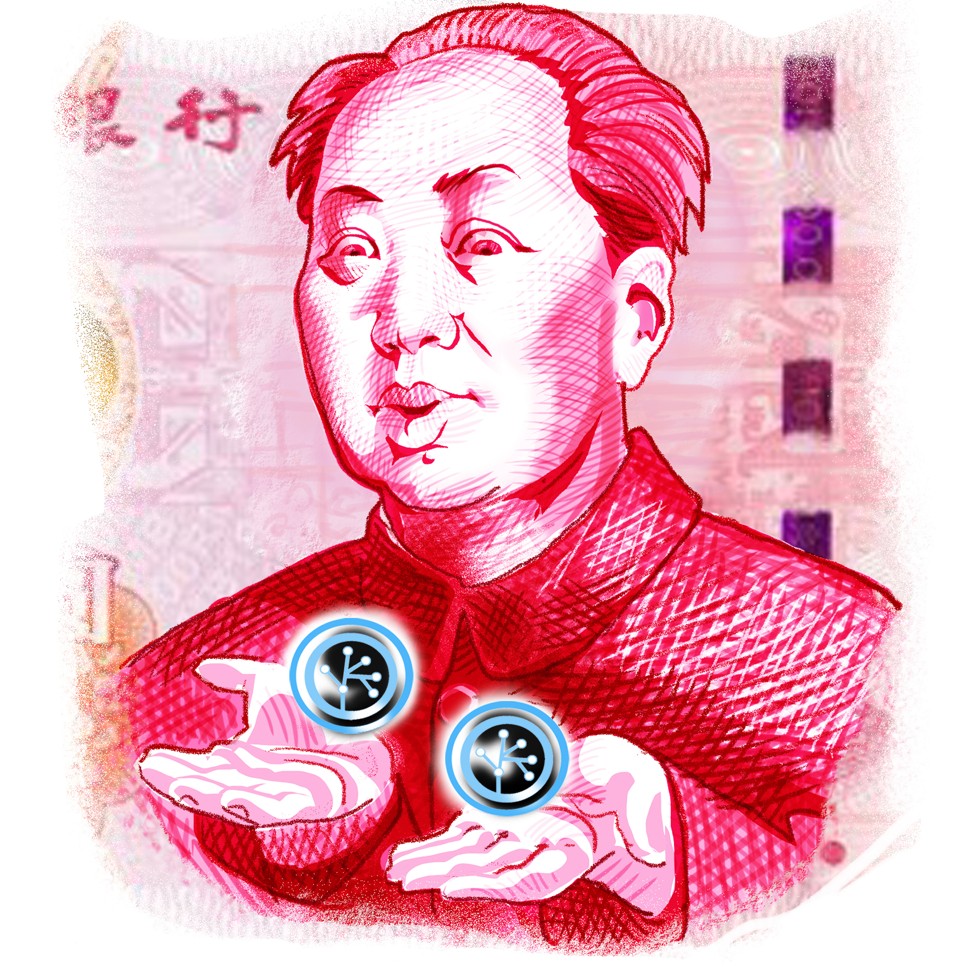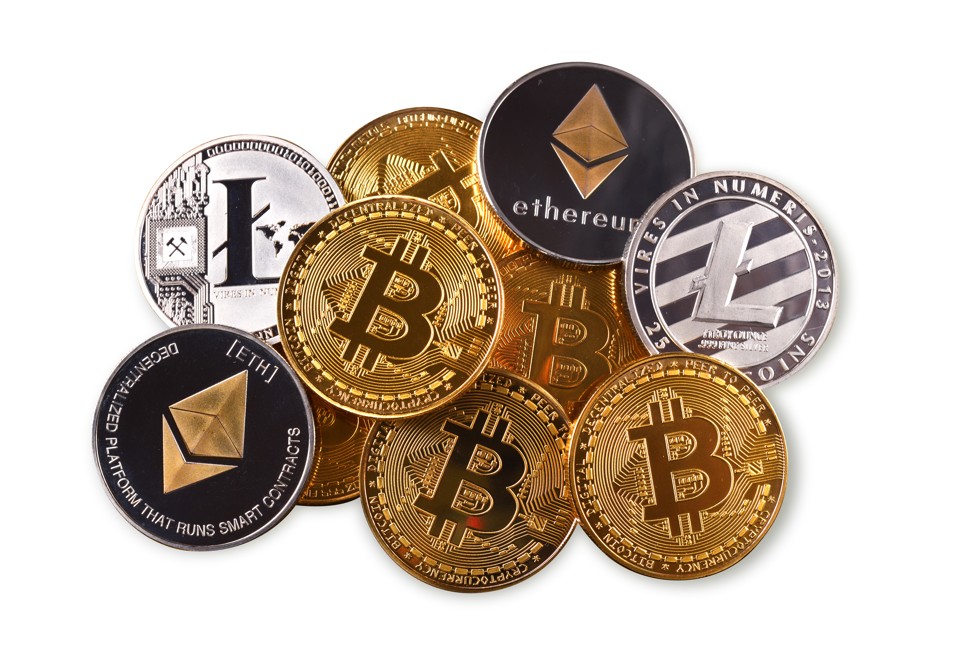Eleesa Dadiani is the new face of cryptocurrency. That’s what I’m thinking as I sit across the desk from her in her gallery, Dadiani Fine Arts, in London’s exclusive Mayfair district. With her porcelain skin, mane of loose hair and eloquent, engaging manner, she certainly doesn’t match the existing stereotype of a socially awkward hoodie-sporting tech-nerd buying amphetamines on the dark web, or a newly minted crypto-millionaire leaning against a Lamborghini in an insufferably gloating Instagram photo. She doesn’t fit the category of a crypto-evangelist, either.
“These libertarians, they don’t understand money, they don’t understand history,” she says. “They know nothing about politics or international relations. You have to understand the world you live in before you can change it.”
Not that she doesn’t believe in cryptocurrency. On the contrary, she has created an entire business around it. Her fine art gallery was probably the world’s first to accept multicurrency cryptocurrency (bitcoin, Ethereum, Ethereum Classic, Litecoin, Ripple, Dash and NEM), but art is just one small part of a bigger crypto brokerage – the UK’s first – that she set up last year to allow buyers to exchange their digital wealth for real-world assets such as rare cars, bloodstock, gems, bullion, private jets and yachts. A Chinese client recently bought four Formula 1 cars, collectively valued at £4 million (HK$41.9 million), in cryptocurrency Litecoin via her Dadiani Syndicate.
Unlike the libertarians she’s referring to – usually white males preaching how decentralised currencies will bring forth a new world order (crypto-pioneers Roger Ver and Olivier Janssens, for example, are trying to create their own decentralised, government-free dream country) – Dadiani knows her money, history and international relations. Her talk is peppered with references to former Libyan leader Muammar Gaddafi and the petro-dollar, capital flight in China, and Russian trade relations.
Lamborghinis greet crypto fans at Blockchain Week in New York
“I’m not anti anything. There’s a need for both systems,” she says. “We haven’t had a universal currency since gold and silver. A decentralised economy allows for borderless trade, which hasn’t been possible before with such ease; people are used to decision-making in trickles, with the group up top choosing what everyone can and cannot do … cryptocurrency requires a cognitive shift. People need to understand why cryptocurrency should be adopted wider, integrated into our existing way of life, for gradual change.”
So that’s exactly what she’s done: integrated cryptocurrency into real life – for bitcoin billionaires, anyway.
“A couple of years ago, when we saw bitcoin perform as well as it did, there was no way to use those coins. You were rich on screen, but what could you do with it? You could invest in ICOs [initial coin offerings], but what about something tangible? The answer was ‘Nothing’. So I had to create a structure of trust to allow people to cash in on their digital wealth. Through the gallery and contacts with private jet owners and so on, where there is a trust protocol already, I created a syndicate, a platform of clients and dealerships.”
Cryptocurrency requires a cognitive shift. People need to understand why cryptocurrency should be adopted wider, integrated into our existing way of life, for gradual change
Eleesa Dadiani
The value of many cryptocurrencies exploded last year. The price of bitcoin, the first decentralised virtual currency, skyrocketed more than 1,300 per cent, despite dropping by 40 per cent during December. Ethereum went up by 8,000 per cent. The total worldwide value of cryptocurrencies is expected to hit US$1 trillion this year.
Dadiani’s clients range from 20 to 70 years old. “These people see an opportunity and take it. Cryptocurrency is just a game for them – it’s fun, not necessity; lives are not hinged on it. Some have claimed to totally unbank … but if so they must have fingers in many pies.”
Trusting digital currency, despite its risky unpredictability, is also what pioneering American crypto-broker Elizabeth White has embraced.
Crypto artists unlock value with Lambos and kitties
“The wild fluctuations mean sellers can lose their profit in minutes on a sale if the crypto market moves against them,” she says. “The sales that we see, outside of the ones we facilitate, are by sellers who are also investors in crypto and are willing to accept the volatility as they plan to hold for the long haul and don’t have any cost of goods or expenses.”
White explains how some merchants claim they accept bitcoin, but typically work with an outfit such as hers to convert the digital currency to fiat and pay the merchant directly for the goods.
The hottest items are luxury cars and unusual experiences designed for cryptocurrency holders: one of The White Company’s clients bought an engagement ring and paid for their honeymoon from crypto holdings, while a Chinese buyer bought a limited edition (one of six) Ferrari early this year for 273 BTC (bitcoin). A 16-year-old boy bought his first car, a new Nissan GTR, from early bitcoin mining profits on his gaming computer.
White says she has a growing number of clients in Asia, especially in mainland China, Hong Kong, Japan, Singapore and South Korea, where “many people invested early in bitcoin ahead of the 2017 market boom and are looking for ways to spend their crypto wealth”.
Most people in the cryptocurrency space are working hard to get bad actors out and go the regulated route.
John Patrick Mullin
Art and wine are sought after, while others are looking to convert their holdings directly into fiat.
Dadiani’s latest move has been to democratise her art offerings somewhat: she has partnered with Maecenas Fine Art, a blockchain (the distributed ledger that records crypto transactions) platform that allows investors to buy fractional interests in high value works of art. In other words, anyone with cryptocurrency could potentially own shares in some of the world’s greatest artworks. In June, 49 per cent ownership of 14 Small Electric Chairs by Andy Warhol, valued at more than US$5 million, went on sale in the form of digital certificates that can be bought using bitcoin, Ethereum and the platform’s own cryptocurrency, ART token.
Crypto craze meets ‘art’: bitcoins used to buy Mandela’s golden hands
An increasing number of luxury brands is likely to soon start accepting cryptocurrency.
“We are currently in talks with several top fine art and antiques auction houses to enable them to accept crypto without any volatility risk,” White says. “Our vision of the future is where anyone can walk into a Rolls-Royce showroom and pay directly, or attend a Sotheby’s auction and bid from their phone with a few swipes of a finger.”
But in addition to the volatility, cryptocurrency, because of its anonymity, is also plagued with the stigma of it being employed in shady dealings.
“This is an unfortunate reality,” says John Patrick Mullin, managing director of the Hong Kong office of trade.io, where he focuses on blockchain digital asset research and business development. “But I don’t see this as a long-term effect. Most people in the cryptocurrency space are working hard to get bad actors out and go the regulated route.”
Are Chinese e-commerce platforms ready for a luxury update?
It’s not easy to regulate a decentralised platform, but as Mullin points out, Napster managed it.
“I think crypto will follow suit. More traditional corporations are looking to get into this. It’s not going anywhere. In my opinion, in five years, cryptocurrency will be as ubiquitous as the internet.”
While Eleesa Dadiani might be the new face of cryptocurrency, it’s probably only until the men in suits take over.
Crypto in Asia
Asia is a hotspot for digital currency, with Japan leading the way. The Japan Cryptocurrency Business Association says that 52,190 shops across Japan accept BTC payment, while 80 shops accept ETH (Ethereum). Mitsubishi UFJ, one of the biggest banks in the world, plans to trial its own cryptocurrency by next year.
Kohei Kurihara, president of the Tokyo Chapter of the Government Blockchain Association, says it’s usually small shops or internet businesses, everything from home goods and accessories to entertainment and wellness services, that allow payment with bitcoin. “It’s a new trend, but it’s only going to expand to even more shops and brands in the future,”
he says.
Want more stories like this? Sign up here. Follow STYLE on Facebook, Instagram and Twitter
Baca Or Read Again https://www.scmp.com/magazines/style/news-trends/article/2154468/bitcoin-billionaires-translate-digital-wealth-real-worldBagikan Berita Ini

















0 Response to "Bitcoin billionaires translate digital wealth into real-world assets"
Posting Komentar